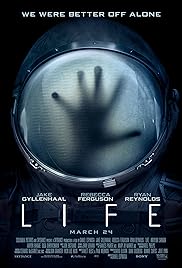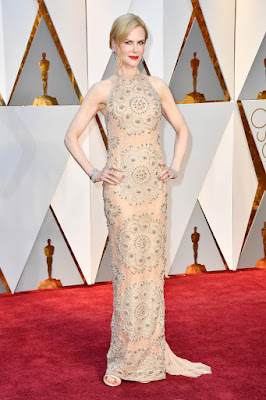So here is a handy recap of my reviews for all nine best picture nominees (which just happen to star most of the Best Actor nominees) to help you with your Oscar pool or just to remind you of the Oscar nominated films and which movies you need to see!
If you want to read the full review and see how I called these films when they first came out, just click on the movie title. Otherwise, I have added a pithy statement about each for a quick read.
See you at the Oscars and stay-tuned for my "Let's Dish About the 2018 Oscars" post next Tuesday where I get really catty about the clothes, the speeches and the antics.
Dunkirk
Rosy the Reviewer says...will stand as one of the best and most inspiring war movies of all time.
Get Out
Rosy the Reviewer says...an original and often humorous horror film that makes you think.
Phantom Thread
Rosy the Reviewer says...a beautiful film that deserves its Best Picture Oscar nomination and harks back to the romantic films of the past highlighted by an interesting, twisty story and brilliant performances. Speaking of which, this is possibly Daniel Day-Lewis's last performance (he plans to retire from acting but he's said that before so take that with a grain of salt).
The Post
Rosy the Reviewer says...Streep is nominated for Best Actress but this year she ain't gonna win nor will this picture win the Oscar for Best Picture, despite the fact that it's important and timely and resonates in today's political climate.
Lady Bird
Rosy the Reviewer says...a coming of age story that we all can relate to with superb nominated performances.
Call Me By Your Name
Rosy the Reviewer says...not my favorite film. In fact, I think I am one of the few critics who did not feel it but expect it to win for Best Adapted Screenplay.
Rosy the Reviewer says...and the Best Actor Oscar goes to...
Three Billboards Outside Ebbing, Missouri
Rosy the Reviewer says...and the Oscar for Best Picture goes to...
The Shape of Water
Rosy the Reviewer says...or the Oscar for Best Picture goes to...
One of the closest races ever for Best Picture!
Good luck and see you at the Oscars!
I also hope to see you Tuesday
I also hope to see you Tuesday
for a fun post show recap.
"Let's Dish about the 2018 Oscars!"
If you enjoyed this post, feel free to copy and paste or click on the share buttons to share it on Facebook, Twitter, Pinterest and LinkedIn, email it to your friends and LIKE me on Facebook at https://www.facebook.com/rosythereviewer
Next time you are wondering whether or not to watch a particular film, check out my reviews on IMDB (The International Movie Database).
Go to IMDB.com, find the movie you are interested in. Scroll down below the synopsis and the listings for the director, writer and main stars to where it says "Reviews" and click on "Critics" - If I have reviewed that film, you will find Rosy the Reviewer alphabetically on the list.

































